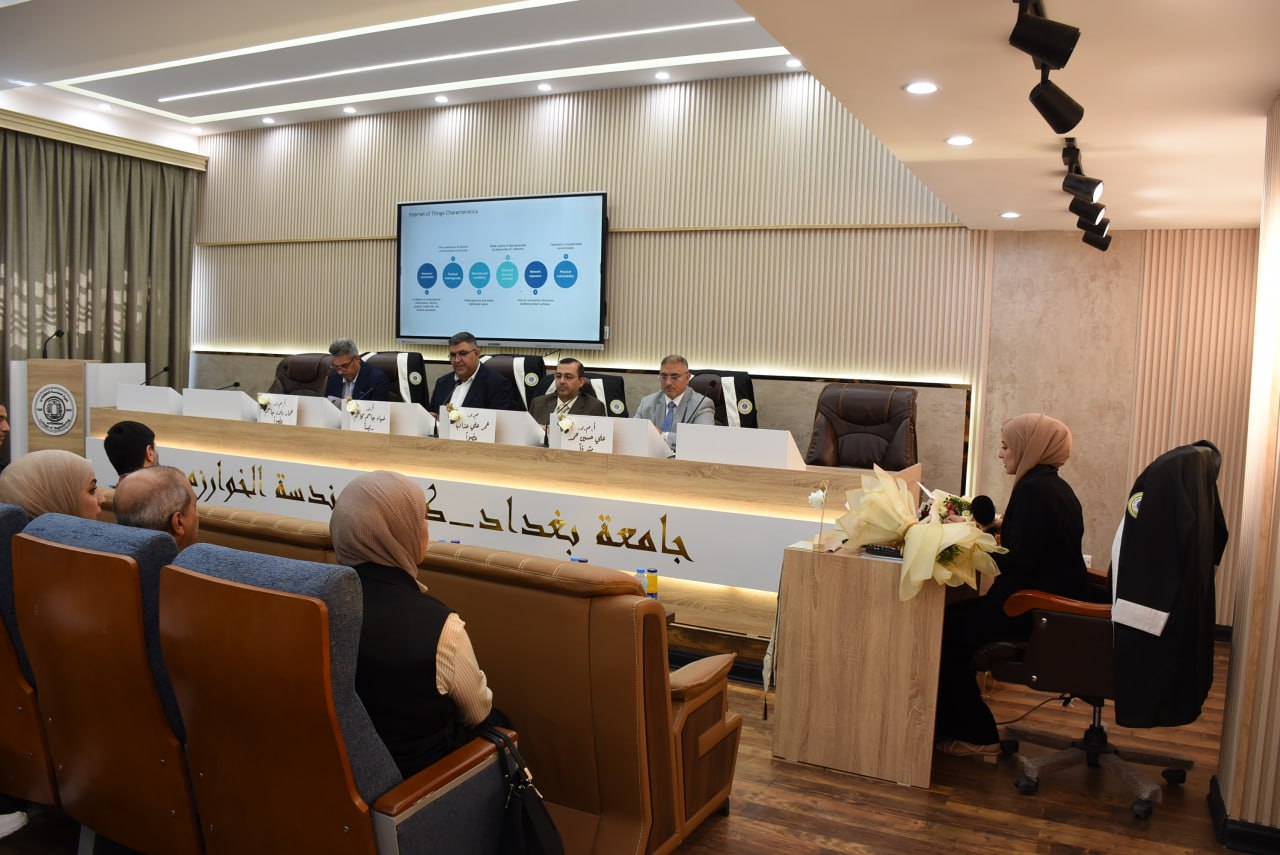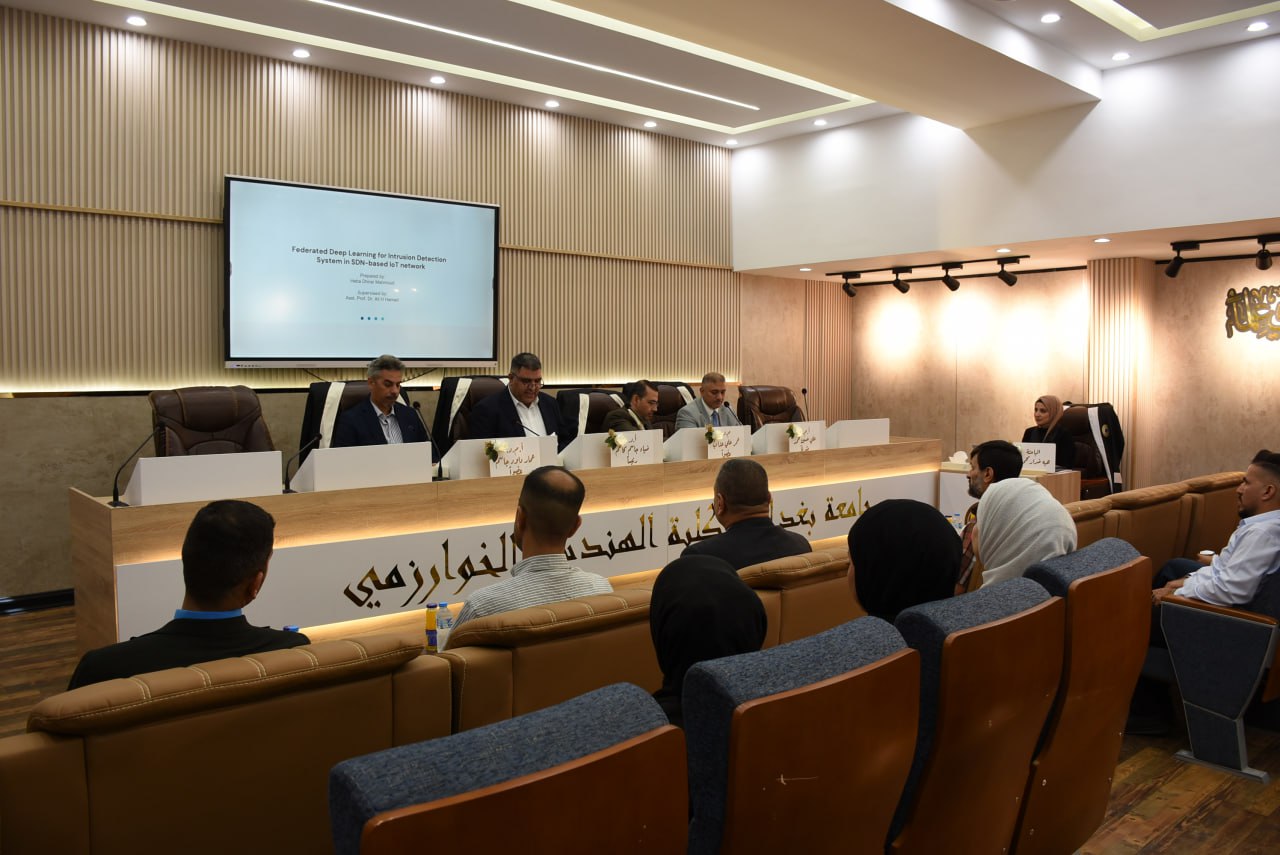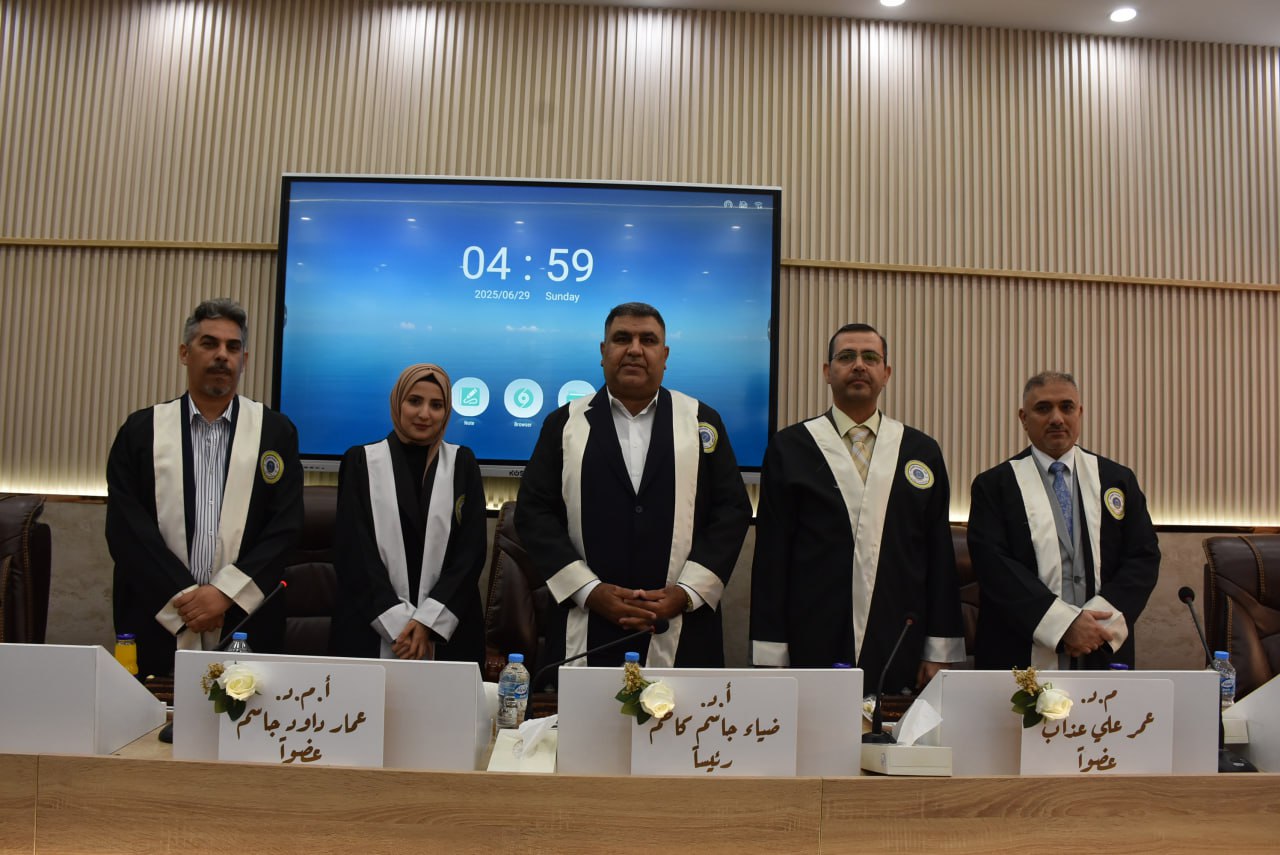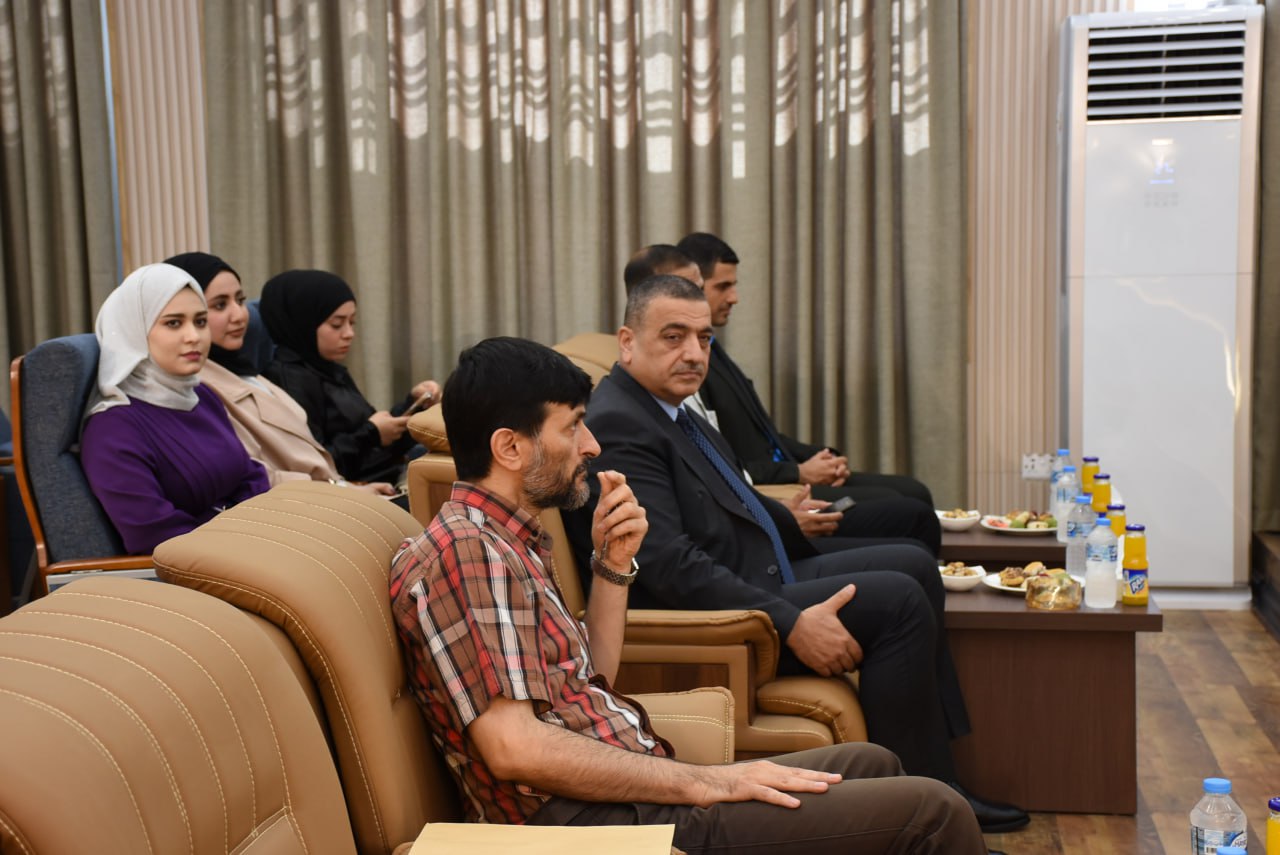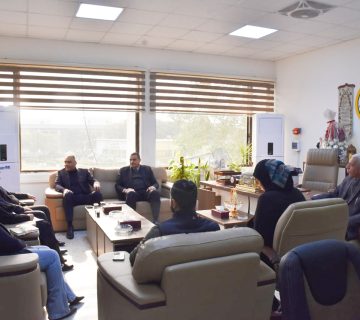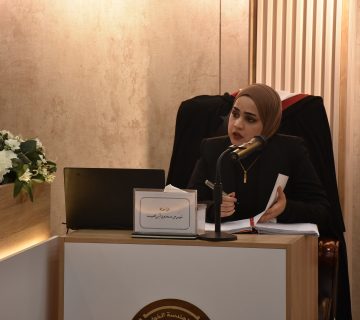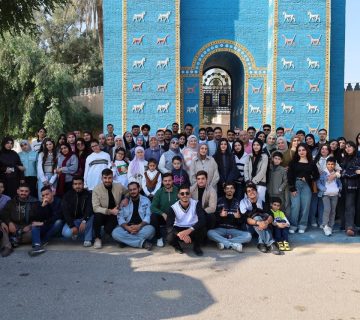Al-Khwarizmi College of Engineering at Baghdad University hosted a thesis defense for student Heba Dhirar Mahmoud, a master’s candidate from the Communication and Information Department, on Sunday morning, June 29th, 2025. Her thesis was titled ‘Federated Deep Learning (FDL) for Intrusion Detection Systems (IDS) in SDN-based IoT networks.’
The candidate received a Pass with Distinction for her research, which makes a significant contribution to data security and AI fields.
This study responds to the growing challenges faced by the Internet of Things, which has seen rapid expansion alongside cybersecurity threats. The researcher focused on creating a smart, resilient intrusion detection system using multiple controllers via software-defined networking, and combining federated learning with deep learning models such as CNN, LSTM, RNN, and DNN, ensuring high security and performance efficiency.
The model uses secure model storage via the IPFS protocol and protects communication channels with AES-256, which provides a safe environment and high data privacy. Evaluation with advanced datasets like InSDN, ToN-IoT, BoT-IoT, and custom datasets containing various network attacks demonstrated the system’s high accuracy, exceeding 98%, with response times under 20ms, making it practical for real-world applications.
The system integrates four AI models, selecting the most accurate results to enhance overall accuracy and reduce errors. Additionally, the proposed system has proven effective against complex attacks in IoT environments.
The research has been published in two scientific papers indexed in Scopus, in Q1 and Q2, reflecting the thesis’s scientific and innovative value and strengthening the college’s reputation as a leading academic institution in cybersecurity and smart techniques.
